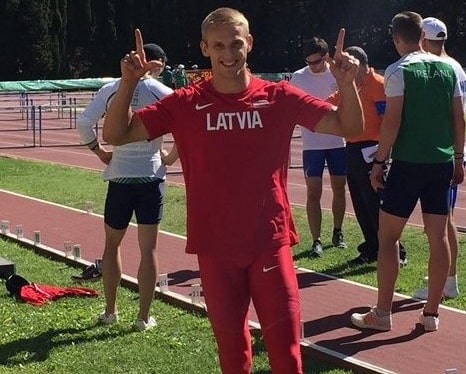The Monday Syndrome

TRAINING LESSONS
CHAPTER 8
It was Monday morning. I had just unlocked the physical therapy clinic's doors and got the clinic ready for the first patients. "Why are you so excited on Monday at 7:30 in the morning? What is wrong with you?” my boss asked me. I could not quite give him a good answer. I was excited about a new week of hard training. I was ready to jump right in and work my butt off after Sunday’s rest day. While most people dread a Monday, most athletes who really want to excel can’t wait to get started. As I mentioned at the beginning of the book, if I have any strengths that I can pinpoint, one would be the ability to connect concepts, people and events. The Monday syndrome ties right into the “One energy pool” and “Contextual graduality” concepts”.
When the Pool is Full, Don’t Empty It Right Away
The summer I trained for the World University Games, most of the time I trained alone. One week Coach had sent me what appeared to be an easy Monday’s training session. I felt frustrated as my desire was to jump right into the week and crush Monday. I felt like I needed a killer workout to feel good because I had plenty of energy saved up. I decided to take the coach’s written training plan and add a few things to turn it into two training sessions plus the weight room. I finished both sessions with a big smile on my face and my inner desire to conquer fully satisfied. Tuesday’s lactate running workout felt miserable. Wednesday’s discus session was sluggish. Thursday in the long jump training I had to be careful with my tight adductor. Friday, I hurt my shoulder in the javelin due to lack of focus, and Saturday’s moderate intensity tempo running workout turned out to be more unplanned suffering. Luckily, I got through the week without any big injuries, but it did remind me that draining myself on Monday was not a sustainable way to train. I probably would have had much more focus and clarity if I had distributed my energy more evenly throughout the week.
It’s a trap of instant gratification. To some degree, elite athletes are good because they are crazy, some are almost addicted to hard effort work. Often an athlete feels that the need to execute is too strong not to quench it right away. It requires being intentional by holding off from a tough workout now, to gain benefit in the future. That is probably one of the main factors of success in any field of life.
Preserving some energy in the first half of the week is also not my idea. I borrowed it from Cal Diez and Ben Peterson’s co-authored book “Triphasic Training: a systematic approach to elite speed and explosive strength performance”. (Dietz, Cal, and Ben Peterson, 2012) Cal Diez, Head Strength and Conditioning coach at the University of Minnesota, calls it “undulation model”. He simply explains how pushing training volume further down the week allows for more quality high-intensity training in the first part of the week. This simple idea solved his own dilemma about how to program his triphasic training model.
Cal also proposes another good common-sense point that coaches often miss. Weekends are there to train hard, not to train easy. Especially for the athletes whose lives are full of other stressors throughout the weekdays, such as school, work, presentations, meetings, etc. Saturdays are often the best days to hammer the body with lots of high-volume stress, and the body will recover just fine given that Sunday is an off-day. On top of that, Saturdays are often also competition days. Why not program the body to have lots of stress on Saturdays? Unfortunately, it is not possible if you have hammered your body hard on Monday, Tuesday, and Wednesday already.
You may be thinking, “I don’t agree because I’ve seen great athletes who train hard every day of the week and don’t get hurt.” Yes, there probably are athletes who apply the exact opposite approach – training hard the first three days and then easing off the rest of the week. Perhaps there are Olympic champions who don’t even think of any of these things at all, they just execute. Do you think Usain Bolt cared less about “The Monday syndrome”? I don’t know, it would be interesting to find out. This is what I and others have observed, experienced and that simply makes a lot of sense. I am simply encouraging you to try walking from Monday into Tuesday with enough capacity to recover so that the rest of the week is productive and adds to the cumulative training effect, not steal from it.
Being a decathlete, I understand that it’s tough to program weekly training and avoid overall fatigue towards the end of the week. For a decathlete, there are just too many events for it not to happen. To some degree, an athlete will wear out towards the end of the week no matter what. That’s expected and normal. Perhaps for your training model, there are a few aspects but not everything where you can incorporate this principle. It’s a simple and very powerful principle. I invite you to find out how it can fit your own training model.
A WORD OF CAUTION
It does not mean that you cannot train hard during the first part of the week, it just means that the training volume is moderate instead of high to be able to keep some freshness in the Central Nervous System and the muscles for the rest of the week.
LESSON
Be careful as a coach about programming hard, high intensity and volume training sessions on the first day of the week. Leave those for the second part of the week. As an athlete, be aware that after Monday there will be five or six more days to bring focus, intensity, and motivation to practice. Leave some energy in the pool.





Comments